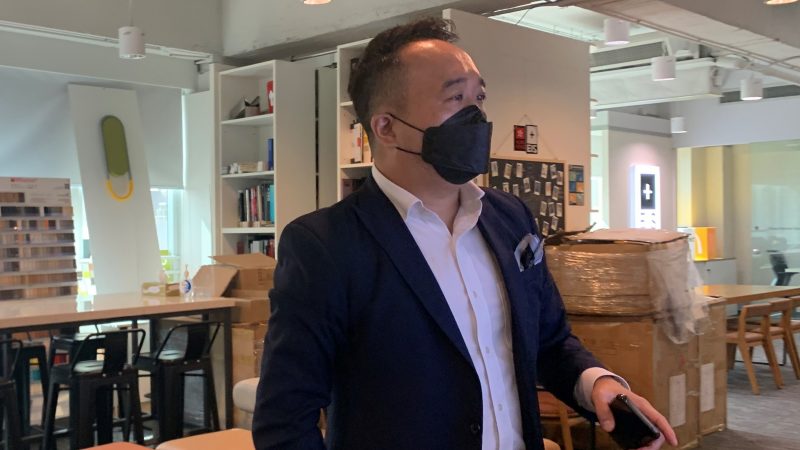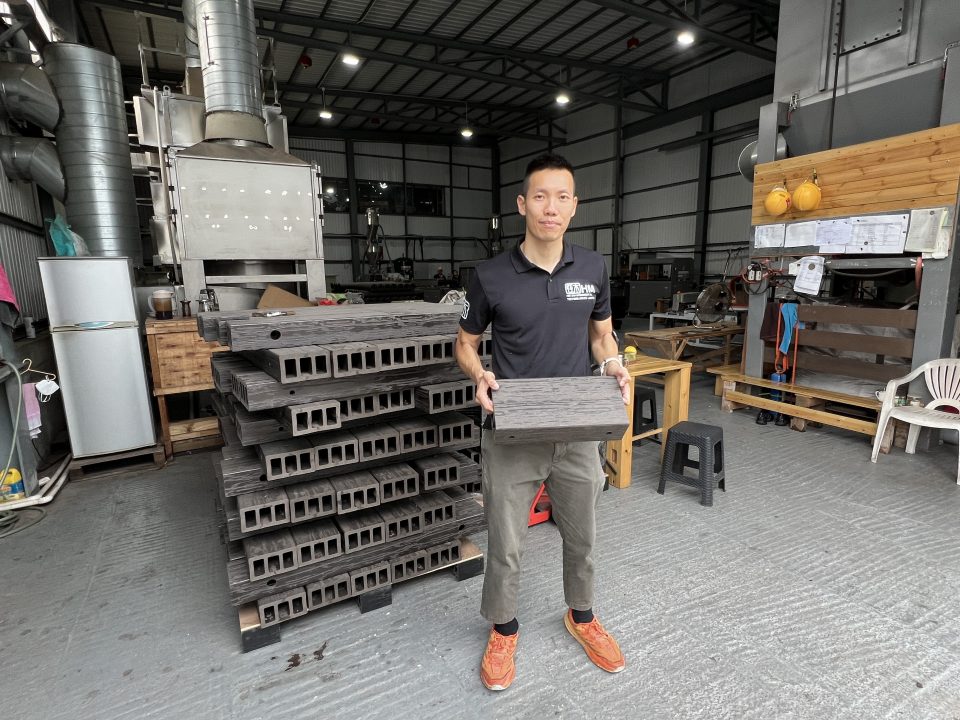
Empathy in Practice – Humanised Design and Workplace Inclusion by Pacific Foodservice Equipment Company Limited
June 6, 2022
Co-living with the Sea: Diving Adventure’s Work in Marine Conservation and Social Inclusiveness
August 15, 2022Elkay Interior Systems: Promoting Sustainable Development within Value Chain through Agility
The world was plunged into the COVID-19 pandemic at the start of 2020. With the spread of the virus across the globe, economic activities ground to a halt. China’s neighbouring city Hong Kong was amongst the first hit, and the local economy plummeted amidst the unclear future ahead.
The region’s gross domestic product dropped by 9% in the first half of 2020 – the largest decline in the region’s history. During the economic downturn, businesses struggled to survive. Yet Elkay Interior Systems Hong Kong Limited (EISHK) found opportunity in this adverse time, opening up new directions by innovative ways of thinking. Today, their General Manager Kenneth Lau shared his formula for success in business operations, and explained how innovation can usher in sustainable development.
| Elkay Interior Systems Inc. is a global manufacturer of furniture and décor, stainless steel products, and provide interior design and product development services. Kenneth has been working at EISHK for over 3 years. As the General Manager of EIS Asia, he manages teams in Hong Kong and China servicing clients in and throughout Asia Pacific, China, the Middle East region and parts of Africa. The Hong Kong office offers client management services, providing sourcing, product management and engineering expertise to provide product and services for clients in the F&B and hospitality industries. In the economic turmoil brought about by the pandemic, EISHK was inspired to develop and expand its assortment of products, diversify its supply chain, and to reinforce its commitment to its workforce. |
Don’t put all your eggs in one basket: it’s better to diversify your investments
[Customer supplier relationship]
In the past few years, EISHK had actively developed and expanded its assortment of products as well as services offered to existing and new customers. This focus on continued innovation has placed EISHK in a position to offer more products and services to its clients and providing a “one-stop shop” solution. This has opened new opportunities, especially in times where clients rely on more strategically aligned partners for growth as well as to ensure supply continuity.
Apart from designing innovative products, flexibly relocating resources is another of EISHK’s key strategies for increasing business resiliency.
“It’s all about avoiding having all your eggs in one basket,” said Kenneth. He thought that diversifying investment helped to stave off the risk of losing the whole game due to a single mistake. Prior to the pandemic, EISHK had already expanded their supply chain to further areas to reduce business risk. They had worked solely with Chinese factories previously, but in 2018 they decided to source alternative suppliers outside of China. They looked at suppliers in new geographical areas such as Vietnam. “When COVID-19 hit, a lot of Chinese factories were shut down. Luckily, by working with other suppliers, we were able to shift our production supply and as a result, we did not have major operational impacts and we continued to service our clients,” he explained that this also acted to expand their supply base and increase their nimbleness in their supply chain.
Play to your strengths by understanding your position in the industry
Usually, it is only large companies that focus on sustainability goals. For instance ensuring that they themselves and their business partners are fully compliant on worker safety and regulatory standards. Kenneth explained that although accelerating sustainable development may appear to be a luxury for SMEs, it is certainly not impossible. He thought that it was up to the managers to realise their company’s position in the value chain, and develop a positive long-term relationship with other businesses. If the company has a good reputation within the market, then they should capitalise on that advantage by promoting a sustainable culture.
EISHK has always been a facilitator in the value chain. They would take care of customers’ needs by selecting the most suitable factories. During the negotiation process, EISHK would always pay great attention to its partners’ requirements or areas of focus. EISHK has worked with a large client to introduce Forest Stewardship Council (FSC) certified wood to its assortment of furniture as well as to promote “green packaging” – removing plastics and Styrofoam from standard packaging. Both initiatives foster a trend towards sustainability. EISHK also agrees that they have observed more customers beginning to pay attention to related issues in recent years.

The success of EISHK’s projects depends on their business partners, as together they are all a part of the value chain. Kenneth explained that they didn’t necessarily come to a consensus with all of their partners. “Sometimes, they place sustainability goals low down on their agenda. But we would explain things in terms of their long-term goals. Taking steps to sustainability would bring them positive value and return in investment after some time. Of course, we would have to build a positive relationship, and accept that not every suggestion would be taken on board.” That said, they would tailor make the most feasible solution from the customer’s point of view.
Following up on your successes, and being flexible, are the keys to success.
When it comes to collaborating with factories, EISHK has their own examination system to overlook their processes. Prior to kickstarting a new partnership, EISHK will visit the factory to ensure that there are safe work arrangements, understand their capability and ensure their values are aligned with their own. Getting to know your own positioning, and making appropriate use of it in the industry, are EISHK’s tips for doing good business.
With peers to benchmark, sustainable business is a must now
[Workplace Culture]

Kenneth believes that in today’s market, sustainable business helps improve a business’ competitiveness. “It’s not only a good thing, but in fact something that must be done.” He further explained that they must step up their practice when their clients are expecting more done in this area. Take workplace culture as an example, EISHK has quite a few interesting human resource policies within the company. They have robust programs in place to constantly review their current talent in the company and work out development plans. To reward those who go above and beyond, they have set up the “You Make the Difference Award”. What’s more, they also provide different types of employee training, such as first aid courses. They also support colleagues in developing diverse interests and continued education. Kenneth attributes these internal policies as a key part of the business and its focus on its people – the most important asset: “That’s how we can keep improving.”
“It’s not only a good thing, but in fact something that must be done.”
“Only by truly understanding your position can you uncover the company’s advantages. Together these combine to have a synergistic effect,” said Kenneth. That’s why EISHK has shown successes in the adverse market.
EISHK is one of the recipients of the Merit Award in SMEs Sustainability Leadership Recognition Scheme 2021 cohort. The Scheme is part of the Partnership for Sustainability Leadership in Business, which is initiated by the Centre for Civil Society and Governance, The University of Hong Kong, and supported by The Hongkong Bank Foundation.








